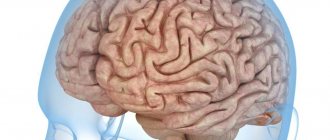Morality - what is it?
The essence of this phenomenon was described by Mayakovsky in his famous poem about good and bad. There is a breakdown of the criteria of good and evil, how to act and what not to do. However, it should be taken into account that the author worked during the existence of the USSR, where communist ideology was present. For states of the bourgeois system, other norms of behavior “worked”. We can conclude that morality in social science is a set of rules of behavior and life that are approved by society.
Morality
Origin of morality
The term was coined by the ancient Roman scientist Cicero. Later, four approaches were formed to study the question of what morality is:
- Religious . Its adherents believed that the source of morality is the absolute. To curb his passions, a person is forced to turn to God for help. Faith in him helps to follow the absolute rules of behavior.
- Evolutionary . In the process of natural selection, a person acquires and inherits a certain line of behavior. According to this version, morality comes from the instinct of sociability of people.
- Naturalistic . The root cause of morality is nature (either in general or in a person). The human mind defines natural moral values (including those within itself) as good or evil.
- Cultural . Morality is one of the elements of society's culture.
Moral or ethical codes
Different religions have formulated fundamental principles of moral behavior. The following ethical codes are known:
- The Ten Commandments of Moses are recognized by Christianity, Judaism and Islam, and are also basic to all world morality.
- The golden rule is to treat others the way you want them to treat you.
- Seven laws of the descendants of Noah - against murder, adultery, blasphemy, idolatry, theft, etc.
- Yama and niyama in Hinduism are the prohibition of violence, theft, lies, promiscuity, and greed.
- Eightfold Path of Buddhism
Morality has many aspects; with its help, the entire psycho-emotional sphere is regulated and streamlined, from individual decency to international relations.
In addition to ethics, the study of this subject is also carried out by the sociology of morality, which studies the nature of the formation of various value systems in individual social groups and the causes of emerging social conflicts caused by discrepancies in moral values, as well as possible ways to prevent them.
Morality is an essential condition for the existence of society. Its task is to make the life of each individual and society as a whole as good as possible by instilling in people the correct life priorities, values and foundations that turn the individual into a highly moral member of society.
How is morality formed?
Worldviews improve as any social system matures. The formation of morality depends not only on the maturity of social foundations, but also on nationality and race, on the geographical location of the region where society lives. What morality is in social science can be understood by tracing the pattern of development of society. In the primitive communal and subsequent early formations of people, the principle of Talion (a tooth for a tooth) prevailed. In modern Western-style societies, the main moral law is tolerance.
Examples of morality
Whenever it comes to issues of moral behavior, there is an internal assessment of actions on a scale of good and evil. To say whether an action is moral or not, you need to take into account all the circumstances of the situation:
- Tell only the truth, do not deceive anyone . However, the concept of morality will be absent if speaking truthfully can betray a friend.
- Respect other people's right to their own lives . At the same time, euthanasia causes a mixed reaction in society.
- Show generosity . However, giving too much can corrupt.
- Be true . Shows of loyalty are moral as long as they do not turn into fanaticism.
- Be a good citizen of society.
- Live a selfless life . Altruism is the highest manifestation of morality. When moral responsibility for people goes beyond personal well-being.
Theories of metaethics
Celia Green identifies two types of morality:
- territorial and
- tribal or folk.
Territorial morality is paradoxical in that people in it are divided into “us” and “strangers” supposedly for the purpose of survival. At the same time, the fact of hospitality to “strangers” is inexplicable.
This is interesting: what is society, what is its meaning in philosophy.
The structure of morality
The organization of social foundations has a complex multi-level structure. They can be formed in the following sectors:
- Moral rules . They directly affect the relationships between people at the “lowest” social level.
- Moral principles . This higher level is associated with the establishment of certain internal “laws” of the development of society. Their violation causes a negative reaction from the entire society.
- Moral ideals . What is morality at this level? This is what a role model is and what this conglomerate of people strives for.
Functions of morality
They help fulfill the main task: to protect against bad deeds. The main purposes include:
- Integrative function of morality . Designed to harmonize the individual's state of mind.
- Evaluation function . It is associated with a person’s ability to determine the criteria for his actions on the “good-evil” scale.
- Regulatory function . She is responsible for setting social norms that must be followed.
- Controlling function . This is a check of the compliance of an individual's behavior with the norms established in society.
- Educational function of morality . This is a mechanism for learning to live in society: how to learn to reckon with other people. He teaches to understand and accept their needs and interests.
Principles of morality
They are necessary for the formation of norms and rules that contribute to the correct development of social relationships. Basic principles of morality:
- Taliona . Characteristic of the early stage of development of society. It says: "an eye for an eye." If any harm has been caused to a person, he must take revenge.
- "The Golden Mean" . This means observing moderation in everything and not going to extremes. In relation to other people, you need to look for ways to compromise.
- Morals . The principle involves observing God-given laws. Its main expression is found in the 10 commandments of Moses.
- Prosperity . A person's actions should benefit as many people as possible.
- Justice . It is based on the potential equality of all people before God. To each is measured according to his deeds.
- Humanism . The set of norms of behavior boils down to the need to be tolerant and compassionate towards others. Living in society, it is advisable to strive to bring maximum benefit to it.
Miru is a gamer
Kohlberg used a narrative approach: having become acquainted with the story, the listener himself decided how to relate to the events presented. However, we can immerse ourselves in challenging stories through other channels - literature and cinema.
The series “Westworld” and “Black Mirror” pose more ethically complex problems than the writers of recent decades.
But in terms of the “number of moral dilemmas per unit of time” indicator, computer games lead by a huge margin. How does this genre help improve morality?
Games develop our analytical apparatus, influence our approach to the world, and set cultural and ethical guidelines. We are faced with the need not only to reflect on the situation, but to do it actively, that is, to make a specific decision and face its consequences. If, when reading Sapkowski, you can skip those places where the hero painfully chooses the lesser of two evils, then in the game “The Witcher” you will not be able to shirk responsibility: you need to kill either one or the other.
Ethical choice is one of the favorite game mechanics of game developers, who keep statistics to find out what the majority of users prefer to do in a difficult situation. Mel McCoubrey, narrative designer for Assassin's Creed Odyssey, boasts of one such dilemma: "You find people infected with a plague and the priest wants to kill them, but the family is guilty of nothing but the disease." It is curious that 68% of players decide to save the unfortunate ones, although they will later infect the entire island.
Another benefit of games is that they tap into the emotional brain, the biological circuit board on which the ethical code is written, changing how we feel, think, and act.
Game designer Jane McGonigal talked about a game developed at the University of Georgia. The system hands you a virtual chainsaw, and you happily cut down a pixel tree. At the same time, the joystick maintains the vibration effect, and when the gigantic plant falls, the toy forest becomes silent and the birds stop chirping. This simple technique changes people's behavior in real life: over the next week, while keeping memories of the dead tree, they used 25% less paper products.
The educational potential of games has already been appreciated by some teachers. For example, Norwegian teacher Tobias Staby included The Walking Dead quest in his curriculum as a “catalyst for discussing ethical dilemmas.” Every time you need to make a difficult choice: save one of the wounded or shoot another victim bitten by the undead, Tobias pauses the game, and the happy students analyze the situation. Yes, it also happens that the zombifying effect of a computer turns out to be the most beneficial for a growing organism!
If games don't interest you, you should turn to books. Fiction has a complex effect on us, involving both the logical and rational principle (hello to the rationalists) and emotions, because fiction makes us empathize.
The famous Canadian psychologist and cognitive linguist Steven Pinker assures us that it is the way we tell each other stories that has made us better as a species.
This is a kind of “moral technology” that develops an ethical outlook: yes, it turns out that there are other tribes and clans, and those guys have their own ideas about happiness, different from ours. The trick, according to Pinker, is also that literature can immerse us in the feelings of another person, introduce us to his inner world, and by understanding how he works and what he experiences, we behave much better with him.
If moral development theorists are to be believed, we need to grapple with moral dilemmas more often, whether they appear in a school classroom, on a computer screen, or on the pages of a novel. Feelings and thoughts, difficult choices are what make us better understand ourselves and the world around us. Ideas about beauty may change from generation to generation, but those who made difficult choices surrounded by zombies seem ready for any changes.
Categories of morality
These are general conceptual elements that describe this subject matter. Moral principles are based on them. Moral categories include:
- good and evil as opposing criteria for evaluating phenomena;
- justice is a measure of the distribution of benefits;
- honor stands guard over compliance with a person’s internal code;
- debt is something for which a person is responsible in life;
- conscience is an indicator of critical assessment of actions;
- happiness as a result of moral behavior.
Rules of morality
Each person has their own. Moral qualities depend on the level of personal development. However, humanity has developed universal rules of morality:
- Golden rule: don’t do to someone else what you wouldn’t want them to do to you.
- Be honest with yourself. This means being able to admit your own mistakes.
- Put yourself in another person's shoes. This will help you feel people better.
- Control the manifestations of negativity in yourself.
- The first impression may be false. After all, what is morality if not the search for a deeper meaning.
What is immoral behavior?
This is a violation of moral principles, expressed in actions. Immoral behavior is directly related to weak spiritual and moral attitudes of the individual. Another reason is commitment to human vices. If an individual behaves immorally, it means that his parents and society did not instill in him certain standards of behavior that are considered moral in society. Further circumstances of life (the environment or being at the bottom of the social ladder) developed in him his own internal moral consciousness. It began to contradict morality in society.
Moral norms
The concept of foundations implies certain views on what a person’s behavior should be in different areas of his life - how to behave in the family (mutual respect, trust, love, etc.), at work (arrive on time, honestly carry out assigned tasks, be polite with employees and superiors), with relatives, friends (to help and rescue in difficult situations, to support in every possible way), with acquaintances and strangers (to be polite, tactful and friendly). Here is an idealistic example of foundations.
In fact, not all people are close to these views and norms of behavior. Also, the system of moral principles includes concepts about actions taken in various life situations, for example: moving a grandmother across the road or giving up a seat on public transport, etc.
Foundations develop and may change slightly throughout a person’s life, but those laid down in childhood, the fundamental ones, basically remain unchanged.
In addition, they can be divided into public and individual. For example: not stealing is a social rule, but returning a lost wallet is a sign of an individual’s well-established personal, highly moral laws.
Law and morality - similarities and differences
Common features of these concepts:
- Law and morality are intended to be regulators of social relationships. Both have social status.
- Both systems in their modern form arose on the basis of development experience.
- They are based on society’s ideas about good and evil, social justice.
- They take into account the needs and interests of individuals in a specific manifestation (for example, protection of personality, property, life).
Morality and law differ in the following positions:
- Moral standards arise in society itself. Legal laws create special bodies according to strictly regulated rules. They also control their implementation.
- Moral standards are transmitted orally (rarely when specifically written down). Legal postulates are always spelled out in official documents.
- What is morality if not a set of different meanings of existence for different strata of society. Legal norms are the same for all citizens. They do not allow for differences of interpretation.
Commandments of the Old Testament and modern society
When “understanding” the question of the meaning of moral principles and ethics in human life, in the process of research you will definitely turn to the Bible to familiarize yourself with the Ten Commandments from the Old Testament. Cultivating morality in oneself invariably echoes statements from the church book:
the events taking place are marked by fate, suggesting the development of moral and moral principles in a person (everything is the will of God); do not elevate the people around you by idealizing idols; do not mention the name of the Lord in everyday situations, complaining about unfavorable circumstances; respect the relatives who gave you life; Dedicate six days to work, and the seventh day to spiritual rest; do not kill living organisms; do not commit adultery by cheating on your spouse; You shouldn’t take other people’s things and become a thief; avoid lies in order to remain honest with yourself and the people around you; Don't envy strangers about whom you only know public facts.
Some of the above commandments do not meet the social standards of the 21st century, but most of the statements have remained relevant for many centuries. Today, it is advisable to add the following statements to such axioms, reflecting the features of living in developed megacities:
don’t be lazy and be energetic to keep up with the fast pace of industrial centers; achieve personal success and improve yourself without stopping at achieved goals; When creating a family, think in advance about the feasibility of the union in order to avoid divorce; limit yourself to sexual intercourse, remembering to use protection - eliminate the risk of unwanted pregnancy, which results in abortion. do not neglect the interests of strangers, going over your head for personal gain.
The spiritual development of a person is a necessary process that helps to develop highly moral and moral qualities. The formation of personality involves going through a series of tests through temptations and temptations. Overcoming fears and controlling desires are two components to achieving your cherished goal. The main thing is to be prepared for the difficulties that arise and really want to achieve the desired result.
If you learn to exist in harmony with the outside world, observing conventional standards and adhering to state laws, then a feeling of inner peace and harmony appears. Moral principles, consistent with the behavioral characteristics and norms of society, are an effective way to change life for the better.











